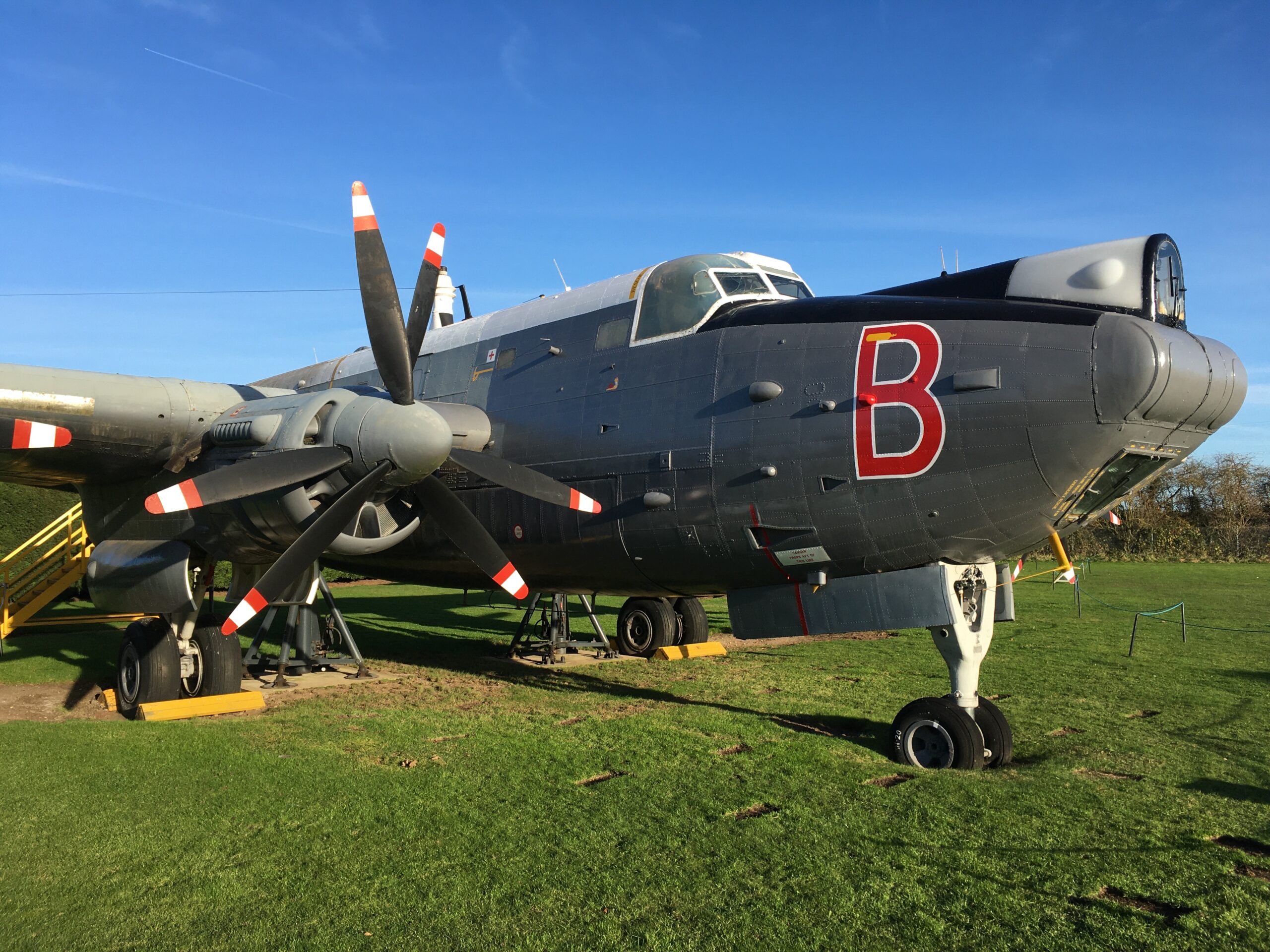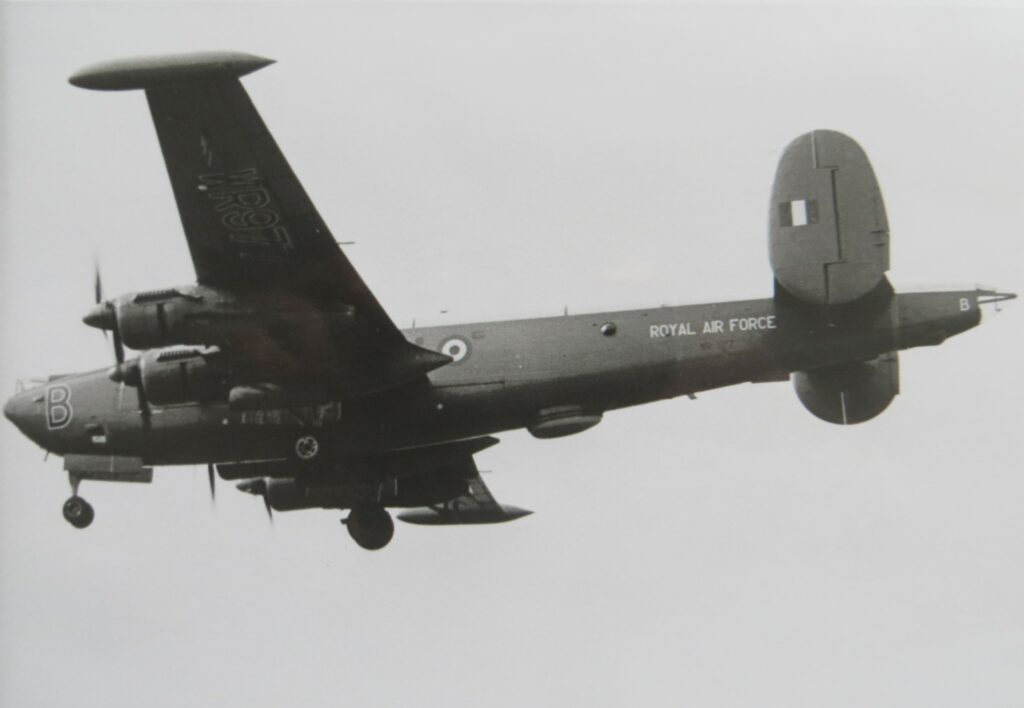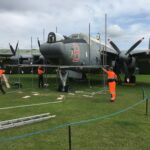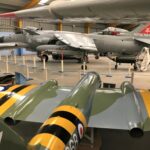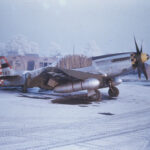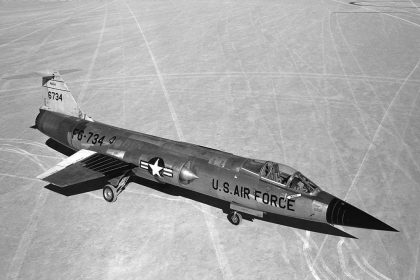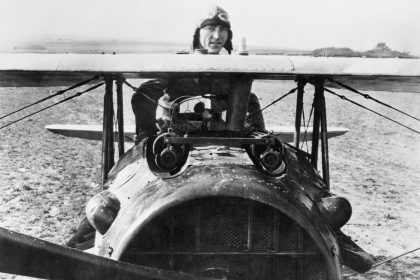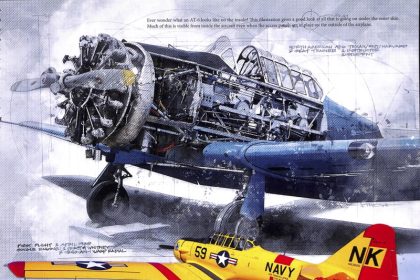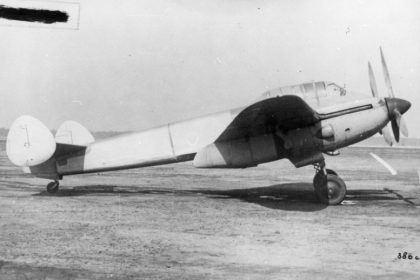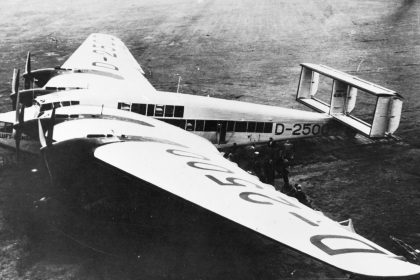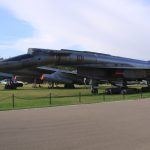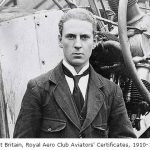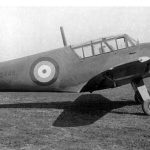By Zac Yates
After four months the scaffolding has been removed from the nose and forward fuselage of Avro Shackleton WR977 at the Newark Air Museum (NAM) near Newark-on-Trent in Nottinghamshire, England.
The Shackleton was developed from the Avro Lincoln bomber – itself a development of the Lancaster of WWII fame – as a long-range maritime patrol aircraft and served with the Royal Air Force from 1951 until 1991, and with the South African Air Force between 1957 and 1984. The charismatic type was powered by four Rolls-Royce Griffon engines driving six-bladed contra-rotating propellers, the distinctive sound of which led to the nickname “Growler” being bestowed on the aircraft. Today WR977 is one of about eight Shackleton MR.3s on museum display worldwide.
As reported earlier this year by Vintage Aviation News, a bespoke scaffolding system supplied by local firm Inspired Scaffolding Services was installed to allow six NAM volunteers, split into teams as their time allowed, to work on this significant restoration and repainting project in safe conditions, museum trustee and secretary Howard Heeley told Vintage Aviation News. “This work included replacement and re-sealing of the main cockpit glazing; in-depth cleaning and lichen removal on the upper fuselage surface, re-sealing the upper escape hatch just behind the cockpit; and conservation and painting of this area of the aircraft,” Howard said.
During the work period WR977 remained open as part of the museum’s open cockpit programme. Contributions from museum visitors to access the aircraft contributed towards the cost of scaffolding hire, materials and paint/chemicals. The museum’s online Just Giving fundraising campaign raised an additional £1,651.73 to assist in covering those costs.
In future further restoration work will be undertaken on the remainder of the airframe, he said.
“We anticipate that the next phase will be the rear fuselage section, with a key aim being to remove the lichen – this will not start until late spring when the weather warms up. … Some internal work will continue on WR977, but the main work will be next year as mentioned.”
A scheme will also be evaluated to raise the aircraft nose wheels from their current position. This will involve the analysis of data from the jacking pads that were constructed underneath the aircraft and the refurbished jacks to be installed under both wings of the aircraft, Howard said.
The good news for Shackleton fans is the aircraft will be on the NAM’s open cockpit roster over winter (as and when the weather and visitor numbers allow) and for a small additional fee visitors can enter WR977 to see the inside of the mighty Growler for themselves.







